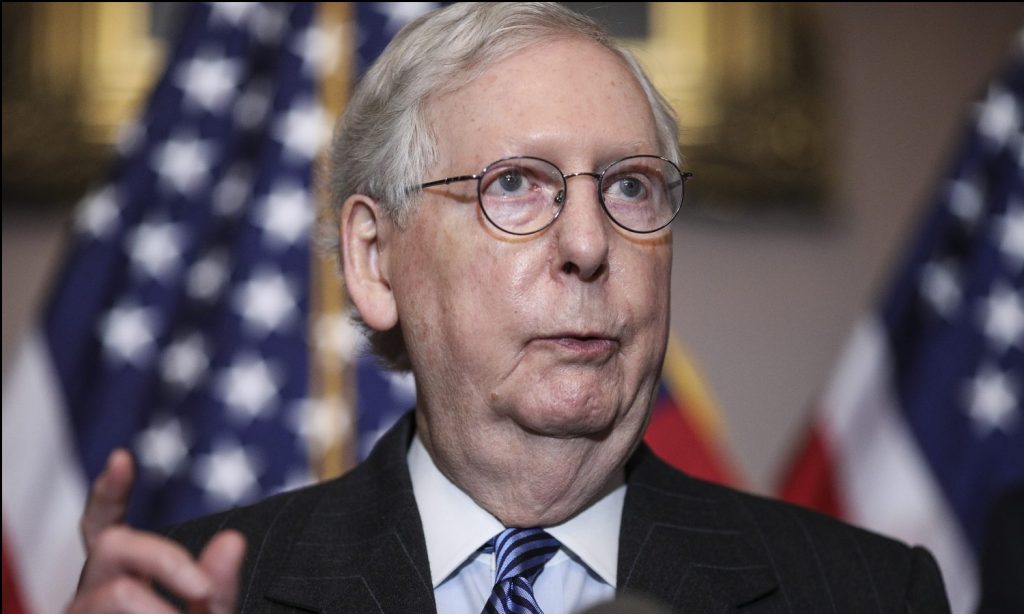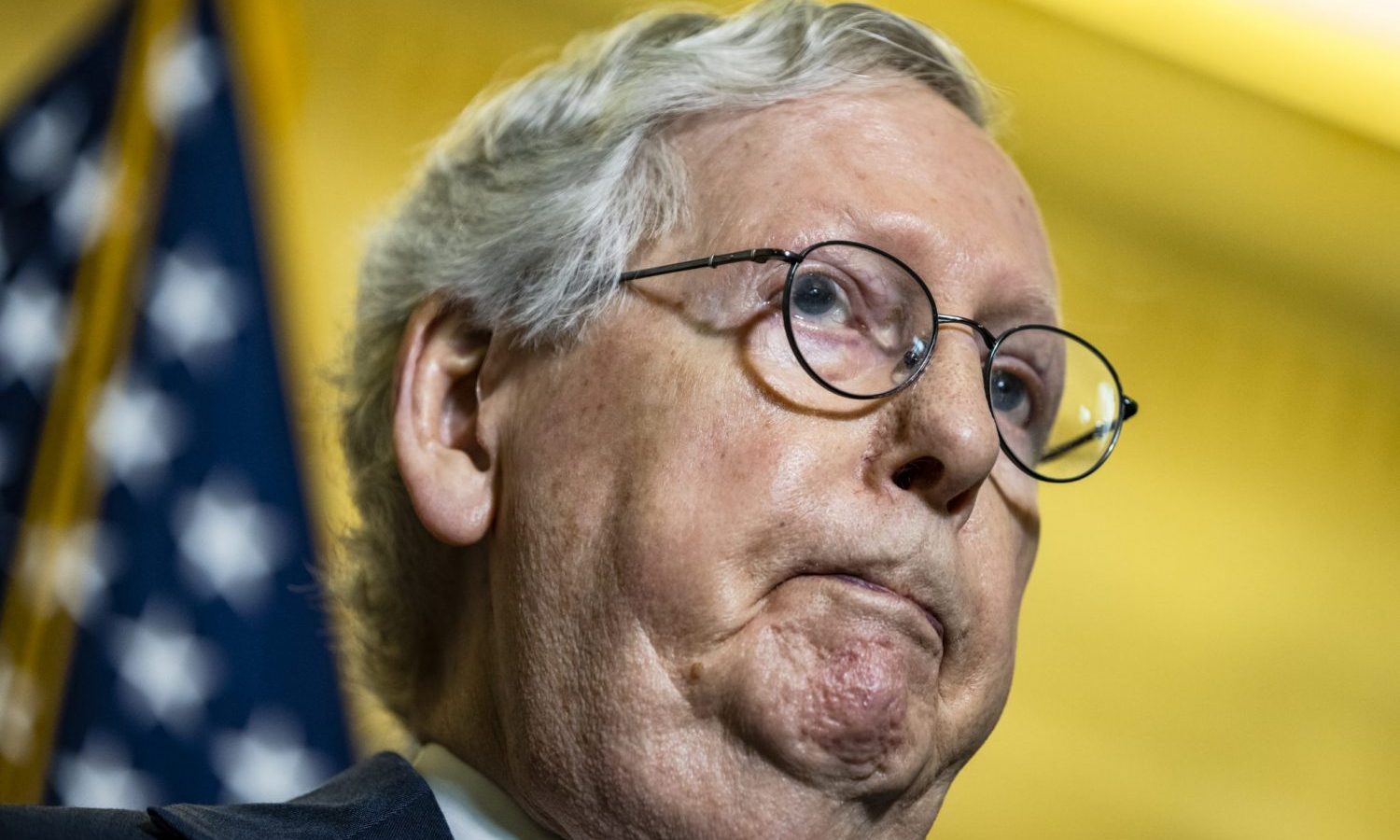McConnell’s bipartisan tendencies seem to have ended with infrastructure. He recently told the Wall Street Journal that he doesn’t see Republicans working with Democrats again.
Although it was like pulling teeth out of the mouth of a fierce great white shark at depths that would give most humans the bends, the Senate just passed a massive, $1 trillion infrastructure bill designed to repair roads, expand Internet technology, finance green energy, etc. It’s something that President Joe Biden has wanted to get on the books since he took office. Yet, getting it done has proved tricky since Congress is equally split.
The Democrats needed some Republican support or else it was doomed. But then something miraculous happened over the past week: Senate Minority Leader Mitch McConnell seemingly let down his guard and went bipartisan. He voted in favor of the infrastructure plan, proving that he isn’t trying to sabotage the Democratic agenda after all and that maybe — just maybe — he’s in a place to better the course of America.

“I was proud to support today’s historic bipartisan infrastructure deal and prove that both sides of the political aisle can still come together around common sense solutions,” McConnell said in a statement on Tuesday. “By promoting sensible, collaborative legislation, we have shown that the Senate still works as an institution. This is an important achievement for Kentucky and the American people.”
McConnell’s willingness to go against his Republican DNA for a moment is encouraging. After all, it was just months ago that he said he is “100%” focused on stopping the Biden Administration. The Kentucky Republican is undoubtedly a problem when it comes to passing Democratic legislation. Anything that’s been proposed so far this year that he’s been able to kill, McConnell has come for blood. He’s also indicated that any and all wins by the Democrats celebrated in filibuster-proof moves will be met with a vengeance once the Republicans come back to power.
But where is the self-proclaimed Grim Reaper of Capitol Hill in his head right now with other issues? What about legal weed?
RELATED: Mitch McConnell Is Still The Cannabis Grim Reaper Of Capitol Hill
Last month, Senate Majority Leader Chuck Schumer finally introduced his long-awaited cannabis legalization bill, attempting to put weed on the map of U.S. commerce just like alcohol and tobacco. Schumer needs at least 60 votes in the upper chamber to get it passed. By his own admission, he doesn’t have them. “We don’t have the votes necessary at this point,” Schumer said. However, if McConnell is finally prepared to work with Democrats, he could help rally the missing votes.
The only problem is McConnell’s bipartisan tendencies seem to have ended with infrastructure. He recently told the Wall Street Journal that he doesn’t see Republicans working with Democrats again.

“Infrastructure is popular with both Republicans and Democrats,” McConnell said. “The American people, divided, sent us a 50-50 Senate and a narrowly divided House. I don’t think the message from that was, ‘Do absolutely nothing.’ And if you’re going to find an area of potential agreement, I can’t think of a better one than infrastructure, which is desperately needed.”
Still, while the American people might be divided, the majority think that legal marijuana is a good idea. National polls have consistently turned out over 60% in favor of taxing and regulating cannabis like alcohol, which is precisely what Schumer’s proposal stands to do. McConnell is not in favor of legalization and has no plans to support it. Still, as McConnell previously stated, he doesn’t think the American voting public wants Congress to do absolutely nothing.
RELATED: Marijuana Is Bipartisan, But That Doesn’t Mean Federal Legalization Is A Sure Thing
Interestingly, McConnell may have unwittingly supported a cannabis provision by throwing his support behind the new infrastructure deal. Tucked inside the infrastructure bill is a provision designed to expand medical marijuana research opportunities in the U.S. It would allow researchers to use the same retail-grade weed purchased by consumers in legal states rather than constantly relying on the low-grade stuff grown by the University of Mississippi.
For years, the quality of research marijuana has been a subject of contention among the scientific community. Researchers have complained that they cannot properly uncover the true magic of the cannabis plant because the products they get are vastly inferior to what is being sold on the legal markets.
It’s a small victory for weed, but considering decades of ignorance, ridicule, and inaction, we’ll take it — for now. Unfortunately, it might be the best advocates can expect this year.


